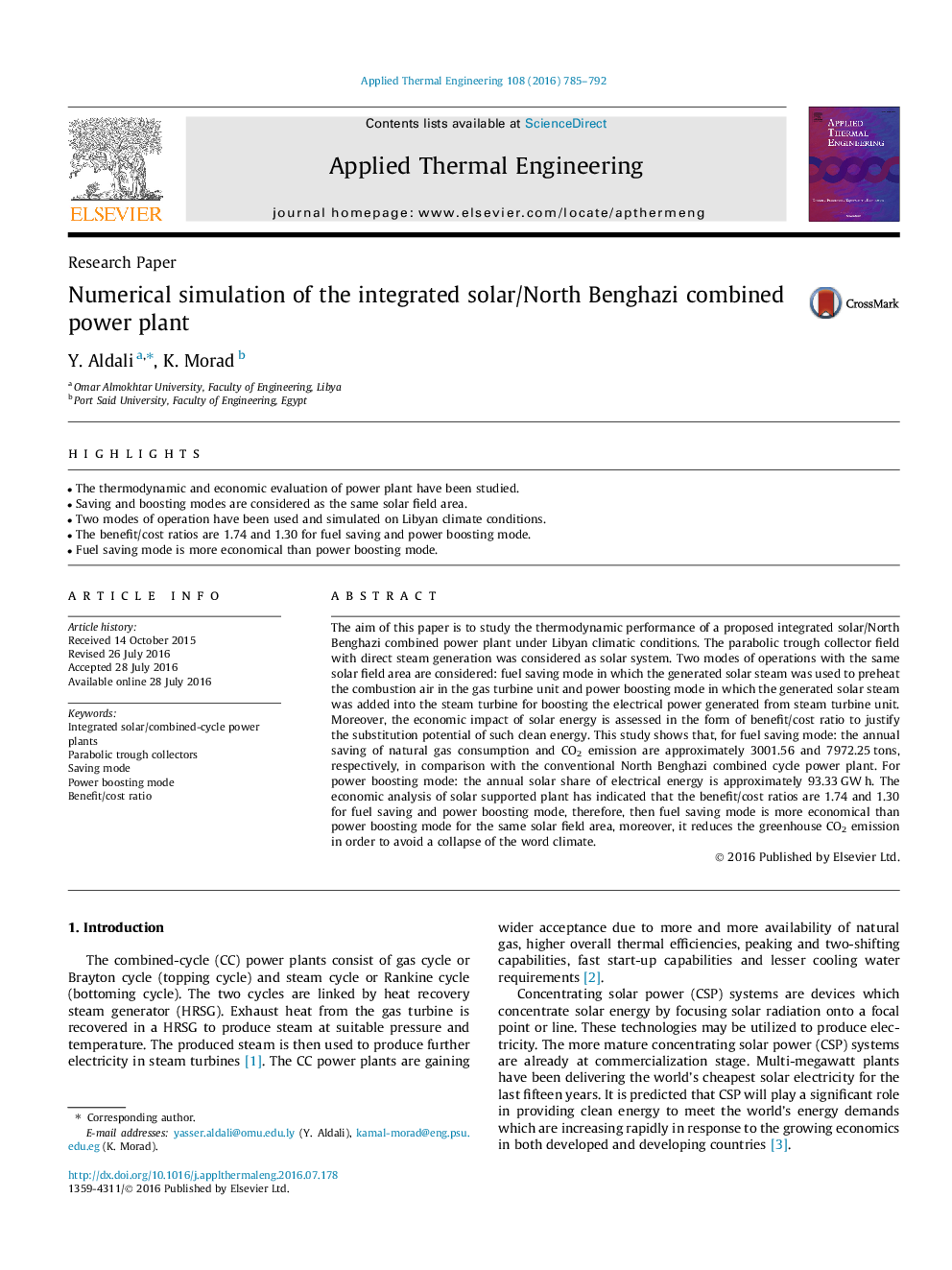| Article ID | Journal | Published Year | Pages | File Type |
|---|---|---|---|---|
| 7046877 | Applied Thermal Engineering | 2016 | 8 Pages |
Abstract
The aim of this paper is to study the thermodynamic performance of a proposed integrated solar/North Benghazi combined power plant under Libyan climatic conditions. The parabolic trough collector field with direct steam generation was considered as solar system. Two modes of operations with the same solar field area are considered: fuel saving mode in which the generated solar steam was used to preheat the combustion air in the gas turbine unit and power boosting mode in which the generated solar steam was added into the steam turbine for boosting the electrical power generated from steam turbine unit. Moreover, the economic impact of solar energy is assessed in the form of benefit/cost ratio to justify the substitution potential of such clean energy. This study shows that, for fuel saving mode: the annual saving of natural gas consumption and CO2 emission are approximately 3001.56 and 7972.25Â tons, respectively, in comparison with the conventional North Benghazi combined cycle power plant. For power boosting mode: the annual solar share of electrical energy is approximately 93.33Â GWÂ h. The economic analysis of solar supported plant has indicated that the benefit/cost ratios are 1.74 and 1.30 for fuel saving and power boosting mode, therefore, then fuel saving mode is more economical than power boosting mode for the same solar field area, moreover, it reduces the greenhouse CO2 emission in order to avoid a collapse of the word climate.
Related Topics
Physical Sciences and Engineering
Chemical Engineering
Fluid Flow and Transfer Processes
Authors
Y. Aldali, K. Morad,
